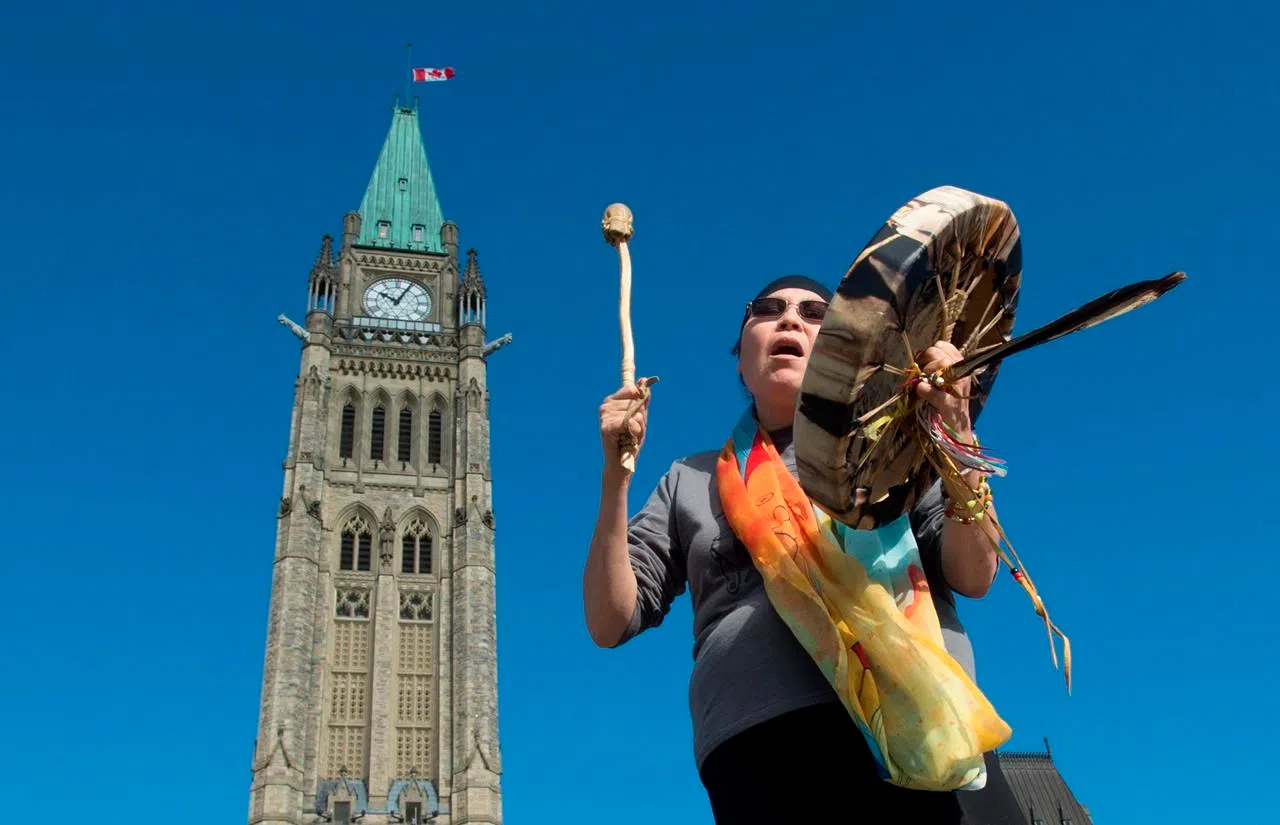
’60s Scoop survivors hope deal stops removal of Indigenous children
OTTAWA — Indigenous adults who were taken from their families between the 1960s and 1980s hope an agreement in principle reached with Ottawa will halt the practice of separating Aboriginal children from their communities, language and culture.
Beaverhouse First Nation Chief Marcia Brown Martel, who was placed in the foster system as a child only to suffer emotional, physical and sexual abuse, said Friday she has “great hope” now a deal has been reached with the federal government including up to $750 million in compensation for victims.
At 54, she said she’s still working to heal from childhood trauma.
“People ask me ‘How did you survive?’” she said. “I don’t know … I could not bring myself to addiction because I was suicidal. I knew that if I ever drank, if I ever did drugs, that I would kill myself.”


